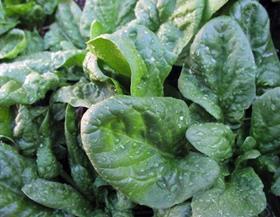
The food standards commission of the United Nations, Codex Alimentarius Commission, has outlined new guidance rulings to improve food safety, covering the leafy salad supply chain as well as melamine and aflatoxin content in food.
New guidelines were outlined during the 33rd session of the Commission, which took place in Geneva, Switzerland and was attended by some 500 delegates from 130 different countries.
The new Codex measures provided specific guidance for leafy green vegetable and salad production, harvesting, packing, processing, storage, distribution, marketing and consumer education to reduce food safety risks.
Guidance covered aspects including the control of irrigation water, cooling and storage, and the correct washing of hands by consumers.
'Fresh, leafy vegetables are part of a healthy diet and are grown under diverse conditions and marketed both locally and globally to provide year-round availability to consumers,' the WHO said in a statement. 'As these products move along the supply chain from the farm to the table, they can be contaminated by pathogens such as salmonella, e. coli and hepatitis A.'
Meanwhile, limits on natural melamine occurrence in food were also tightened as part of the new Codex, while a maximum level of 10 micrograms per kg was set for aflatoxins in shelled Brazil nuts and 15 micrograms per kg for those headed for processing.
The 47-year-old Codex Alimentarius Commission is run jointly by the Food and Agriculture Organisation (FAO) and the World Health Organisation (WHO), setting international standards to protect the health of consumers and ensure fair practices in the food trade.
The results of its work form the Codex Alimentarius, a set of international food safety and quality standards that when introduced into national legislation contribute to the safety of food and the international food trade.



